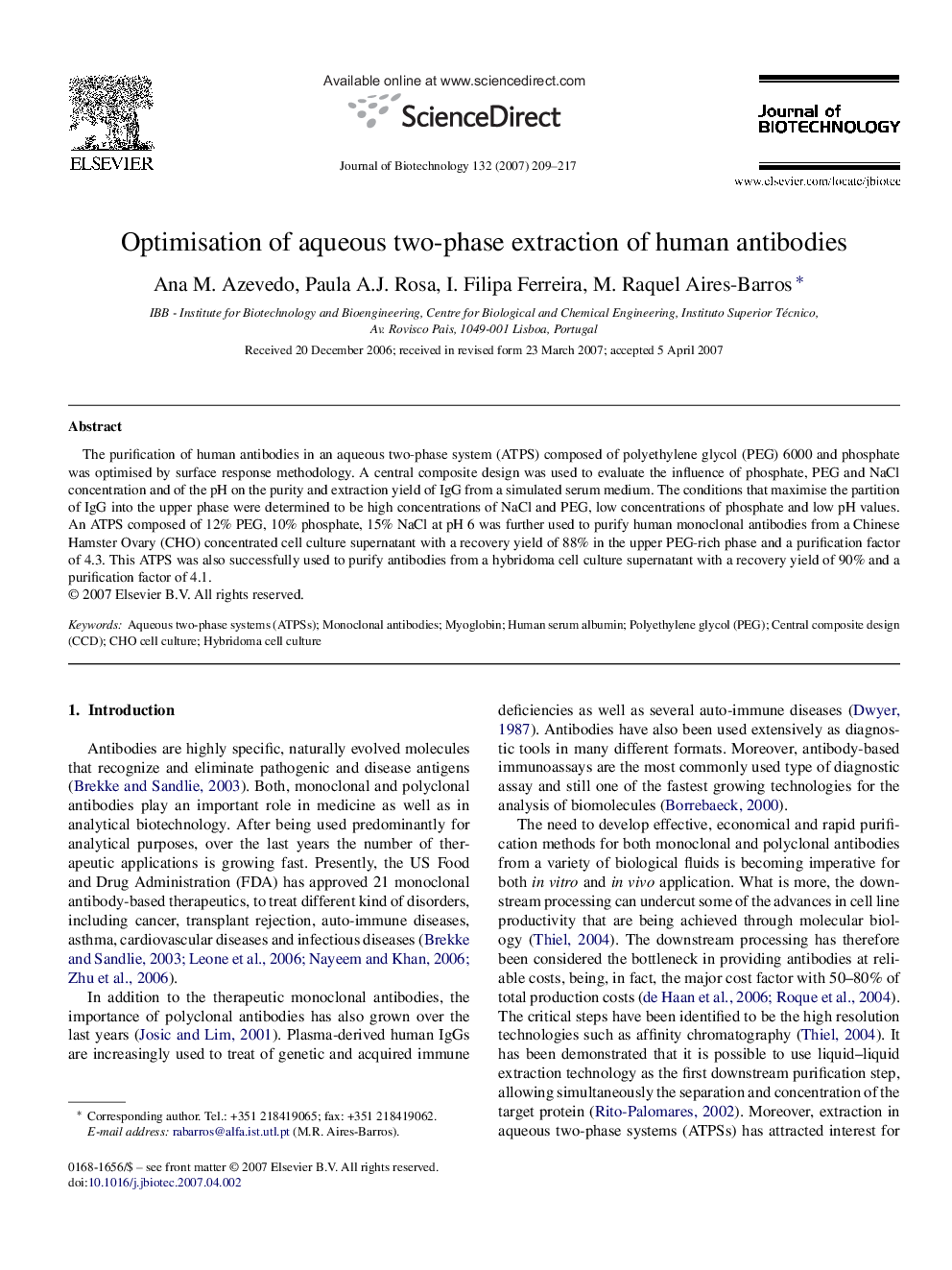| Article ID | Journal | Published Year | Pages | File Type |
|---|---|---|---|---|
| 24950 | Journal of Biotechnology | 2007 | 9 Pages |
The purification of human antibodies in an aqueous two-phase system (ATPS) composed of polyethylene glycol (PEG) 6000 and phosphate was optimised by surface response methodology. A central composite design was used to evaluate the influence of phosphate, PEG and NaCl concentration and of the pH on the purity and extraction yield of IgG from a simulated serum medium. The conditions that maximise the partition of IgG into the upper phase were determined to be high concentrations of NaCl and PEG, low concentrations of phosphate and low pH values. An ATPS composed of 12% PEG, 10% phosphate, 15% NaCl at pH 6 was further used to purify human monoclonal antibodies from a Chinese Hamster Ovary (CHO) concentrated cell culture supernatant with a recovery yield of 88% in the upper PEG-rich phase and a purification factor of 4.3. This ATPS was also successfully used to purify antibodies from a hybridoma cell culture supernatant with a recovery yield of 90% and a purification factor of 4.1.
